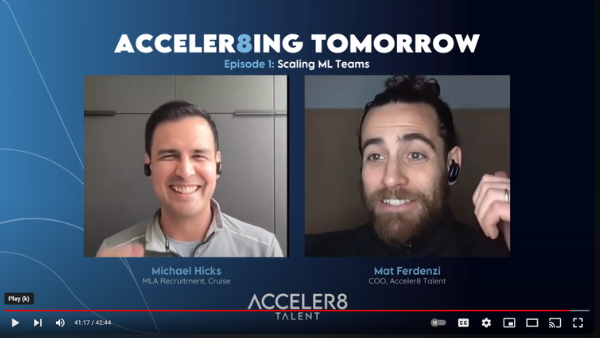How Can Your Start-up Compete With Big Tech When It Comes To Recruiting Talent?
25 Nov, 20214 min
Competing with Big Tech for engineers, researchers, and data talent can feel impossible, but your start up has real advantages that companies like Google, Amazon, and Meta cannot match. If you sharpen your culture, flexibility, learning offer, equity, and hiring process, you can become a first choice employer. Acceler8 Talent works with high growth start ups every day to help them win that battle.
Key Takeaways:
- Start up leaders in hubs like Boston, New York, and the Bay Area can compete with Big Tech if they lean into impact, ownership, culture, and equity.
- Clear, honest culture and values help you win candidates who care about mission, team, and how work actually feels day to day.
- Real flexibility is now a basic expectation for Gen Z and millennial tech talent, not a perk you mention at the end.
- Your smaller size is a strength if you use it to offer faster responsibility, visible impact, and direct access to the product vision.
- A sharp hiring process, often supported by a specialist recruitment partner, lets you move faster than large employers and secure the right people.
Why competing with Big Tech for talent feels so hard
If you are a founder or hiring manager at a twenty person start up, it can feel like you are playing a fixed game. A strong MIT graduate or senior machine learning engineer can pick from several offers. One of those logos is probably a Big Tech name, and you worry the decision is already made.
Why is Big Tech so attractive to engineers and data scientists?
Big Tech is so attractive to engineers and data scientists because it combines high salaries, recognisable brands, and a signal of prestige on a CV.
Graduates from MIT, Harvard, Stanford, and other leading universities can receive multiple offers across software engineering, research, and data science. Mid level and senior specialists have inboxes full of messages from in house recruiters and headhunters. Your challenge is to cut through that noise and show why your start up is the better long term move.
As a specialist tech recruiter, Acceler8 Talent sees daily that pay matters, but it is not the only factor. Many high calibre candidates are ready to choose start ups for the right mix of impact, culture, and growth.
Make your start up culture real and visible
Culture is often the main reason people stay or leave. If the culture they find does not match what you sold in the hiring process, you will see quick churn and a damaged reputation in a small market.
What does a strong start up culture look like in practice?
A strong start up culture is one where what you say in interviews matches what people experience once they join.
The pandemic and the Great Resignation highlighted how willing people are to leave roles that do not feel meaningful. Many engineers now care as much about purpose, team, and values as they do about title.
You can show culture in simple, concrete ways:
- Use real photos and stories of your team on your site and social channels.
- Share your values with every candidate and show examples of those values in action.
- Talk honestly about how decisions are made, how feedback works, and how you handle setbacks.
- Highlight everyday practices that candidates care about, such as casual dress, food in the kitchen, space for pets in the office, or regular social time.
Candidates also watch how you behave on topics like sustainability and social impact. If environmental commitments or community projects matter to your business, bring that into the recruitment conversation.
Use flexibility as a genuine competitive edge
Gen Z and millennial candidates increasingly see flexibility as a basic rule of work. They have seen that serious work can happen outside an office, and they are not willing to give that up.
Why is flexibility so important to Gen Z and millennial tech talent?
Flexibility is so important to Gen Z and millennial tech talent because it directly affects quality of life and long term happiness at work.
Research from leading business schools and consulting firms has shown that expectations for flexible work, better work life balance, and remote options are now among the strongest forces shaping how companies operate. Many professionals with care responsibilities or side projects have experienced a different way of working since the pandemic and will turn down offers that feel too rigid.
How can a start up offer meaningful flexible work options?
A start up can offer meaningful flexible work options by using its size to agree sensible patterns instead of blanket rules.
You may not have a global remote policy written up yet, but you can be clear and honest about:
- How often you want people on site and why.
- Which hours, if any, need overlap for meetings and collaboration.
- How stand ups, planning, and retrospectives work for remote team members.
- Which tools you use for communication and project tracking.
If you are early stage, clear remote friendly policies, thoughtful flexi time, and a healthy amount of vacation can be powerful drawcards. The more specific you are, the easier it is for a candidate to picture their life in your company.
Turn your start up value proposition into a superpower
You cannot outspend Big Tech on salary, but you can offer things that large employers struggle to provide at scale.
How should a start up position its value against Big Tech?
A start up should position its value against Big Tech by leaning into impact, ownership, and speed.
Large organisations have structured training schemes and strong brands, but they also have bigger teams and longer decision cycles.
You can offer:
- A direct line to founders and senior leaders.
- Real ownership of architecture, research direction, or product features.
- The chance to see code, experiments, or designs land in the product quickly.
- Exposure across the stack in areas like AI, hardware, and data rather than a narrow slice of work.
For many engineers, researchers, and product leaders, the chance to shape something from Series A through later stages is more exciting than being one of hundreds on a global platform team.
Why does learning and development matter so much for tech professionals?
Learning and development matter so much for tech professionals because skills in areas like AI, quantum computing, hardware acceleration, and photonics move quickly, and nobody wants to fall behind.
LinkedIn’s Workplace Learning Report found that 94 percent of employees say they would stay at a company longer if it invested in their career development. That single statistic shows how powerful a credible learning promise can be for retention and hiring.
Candidates that Acceler8 Talent speaks to each week often ask first about:
- Time for learning and side projects that align with the stack.
- Budget for courses, conferences, and online platforms.
- Access to senior colleagues who can mentor them.
As a smaller organisation, you can personalise development plans and hold regular one to one sessions to review growth, goals, and future roles. That level of attention is harder to give inside very large structures.
Use equity and process to close the gap
You may not match every base salary, but you can build a complete offer that feels fair and exciting.
Why should start ups offer equity to employees?
Start ups should offer equity to employees because it gives people a clear stake in the outcome they are working on.
Market level salary, health insurance, and retirement plans form the base. Equity is the upside that reflects early stage risk and ambition. Big Tech often offers stock in large organisations where the growth curve is less steep. You can offer options that have meaningful potential if the company grows or exits.
This can be a strong motivator for people who want their effort in the early, harder years to connect directly to future reward.
How can hiring process help a start up beat Big Tech for talent?
Hiring process can help a start up beat Big Tech for talent by feeling sharper, warmer, and faster than the experience many candidates are used to.
Your process should:
- Draw on the right networks in Boston, New York, the Bay Area, and other key clusters.
- Approach people in a way that reflects your brand and values.
- Move from first call to decision with clear, lean stages and realistic timelines.
- Keep candidates informed so they never wonder if you have forgotten them.
The challenge is doing this while you are also building product, talking to investors, and trying to have a life. For many founders, it is not realistic without outside help.
Working with a specialist recruitment partner gives you market insight and a professional process from day one. Acceler8 Talent, for example, has deep networks in AI, machine learning, hardware acceleration, quantum computing, photonics, and related deep tech fields, and knows what strong talent looks like in each area.
How to compete with Big Tech for start up hiring
The outcome of this playbook is a hiring strategy that lets your start up compete credibly with Big Tech and other well funded employers.
Define your critical hires - Decide which engineering, research, and data roles will move funding, roadmap, and delivery most, instead of hiring reactively.
Write your cultural story - Capture your values, rituals, and working style in clear language so you can describe life at your start up in a way that feels real.
Set your flexibility offer - Agree where and when people can work, how often you meet in person, and how you keep office and remote staff aligned, then share that in every job conversation.
Build a learning promise - Commit to a simple development offer, such as learning budget, mentorship, and time, and show candidates how that will work for them in practice.
Design an equity framework - Decide how you will use stock options across levels, and be ready to explain vesting and potential outcomes in clear, honest terms.
Map a lean interview process - Keep stages focused and consistent. Train interviewers to ask relevant questions, give feedback, and model the culture you want to protect.
Partner with specialist recruiters - Bring in a recruitment partner with live networks in your niche so you see better shortlists and can spend more of your own time on product and customers.
Final thoughts on competing with Big Tech for talent
Over time, a clear mix of culture, flexibility, learning, equity, and process will help you both attract and retain the people you work so hard to hire. That retention builds real value as your start up grows, raises further funding, and strengthens its position in competitive markets like AI and deep tech.
If you invest properly in these areas, Big Tech stops being an automatic winner on every short list. Many of the best engineers and researchers will choose the place where they can grow, own work, and see their impact.
FAQs: start ups competing with Big Tech for talent
Q: How can a start up compete with Big Tech for talent on a limited budget?
A: The way a start up can compete with Big Tech for talent on a limited budget is by emphasising impact, ownership, culture, flexibility, learning, and equity instead of trying to copy the highest salaries.
Q: Is salary still the main factor when engineers choose between a start up and Big Tech?
A: Salary is still important when engineers choose between a start up and Big Tech, but many will accept a slightly lower base if the start up offers more impact, faster growth, and a genuine voice in product decisions.
Q: How important is company culture in recruiting against Big Tech?
A: Company culture is crucial in recruiting against Big Tech, because people stay or leave based on how work feels each day, not only on how much they are paid.
Q: Should every start up offer equity as part of its package?
A: Every start up should seriously explore equity as part of its package, since options can bridge some of the gap with larger employers and give new hires a clear stake in future success.
Q: Does working with a recruitment agency really help start ups win talent from Big Tech?
A: Working with a recruitment agency helps start ups win talent from Big Tech by giving them access to warm networks, market data, and a professional process that saves founders time and improves the candidate experience.
About the Author
This article was written by a specialist recruitment consultant at Acceler8 Talent who partners with founders and hiring leaders in high growth start ups. Drawing on hands on experience in AI, machine learning, hardware, quantum, and photonics recruitment across the US and UK, they help companies refine hiring strategies, strengthen value propositions, and secure scarce technical talent in markets that Big Tech also targets.
Stop losing top engineers to Big Tech
If you are building a start up and want to hire engineers, researchers, and scientists who could easily join a global brand, you do not have to solve that challenge on your own. A focused recruitment partner can help you sharpen your story, reach the right candidates, and run a hiring process that feels as strong as your product.
You can speak to the Acceler8 Talent team to talk through your hiring plans and explore how specialist support could help you build the team that investors, customers, and future hires want to join.




